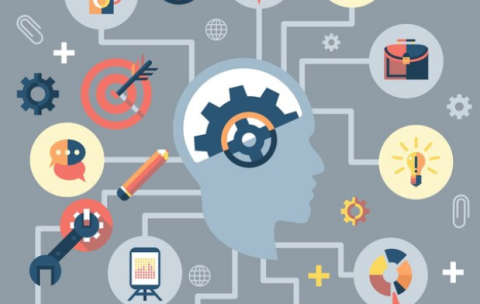Popular Instructors
All Research Development and Projects Courses
Advanced Communication for Researchers
Advanced Communication for Researchers is a multifaceted skill set crucial …
What you'll learn
Fundamentals of Research Communication (2 hours)
Overview of effective communication in a research context.
The importance of clarity, accuracy, and audience adaptation.
Written Communication Skills (4 hours)
Techniques for writing clear and concise research papers, proposals, and reports.
Best practices for structuring and presenting written content.
Oral Presentation Skills (4 hours)
Crafting and delivering engaging and informative research presentations.
Use of visual aids and storytelling techniques.
Communication for Diverse Audiences (3 hours)
Tailoring communication strategies for different audiences, including academic, industry, and general public.
Cross-cultural communication and its significance in research.
Digital and Media Communication (3 hours)
Effective use of digital platforms for research dissemination.
Engaging with media and public relations for research promotion.
Collaborative Communication in Research Teams (2 hours)
Enhancing team communication and collaboration in research settings.
Managing interdisciplinary communication effectively.
Ethical and Responsible Communication (2 hours)
Addressing ethical considerations in research communication.
Avoiding misrepresentation and overgeneralization of research findings.
Project Management and Organization
Project Management and Organization is a crucial discipline in business …
What you'll learn
Introduction to Project Management (2 hours)
Overview of project management principles.
Different project management methodologies (e.g., Agile, Waterfall).
Project Planning and Scheduling (3 hours)
Setting project goals and objectives.
Creating work breakdown structures and Gantt charts.
Resource allocation and scheduling techniques.
Risk Management (2 hours)
Identifying potential risks in projects.
Techniques for risk assessment and mitigation.
Budgeting and Cost Management (2 hours)
Budget planning and cost estimation.
Cost control and financial management in projects.
Quality Management (2 hours)
Principles of quality management in projects.
Tools and techniques for maintaining project quality.
Stakeholder Management and Communication (3 hours)
Identifying and engaging with stakeholders.
Effective communication strategies in project settings.
Leadership in Project Management (2 hours)
Leadership skills and styles in managing projects.
Team dynamics and motivation within project teams.
Agile Project Management (2 hours)
Principles of Agile methodology.
Managing projects in an Agile environment.
Project Closure and Evaluation (2 hours)
Closing projects and post-project evaluation.
Lessons learned and best practices for future projects.
Collaboration and Teamwork in Research Settings
Collaboration and teamwork play pivotal roles in research settings, significantly …
What you'll learn
Introduction to Teamwork in Research (2 hours)
Understanding the importance of teamwork in research settings.
Exploring the characteristics of high-functioning research teams.
Building Effective Research Teams (3 hours)
Strategies for forming and developing research teams.
Assessing and utilizing individual strengths and skills within a team.
Interdisciplinary Collaboration (2 hours)
Navigating interdisciplinary research teams.
Leveraging diverse skills and perspectives for innovative research.
Communication Skills for Researchers (3 hours)
Enhancing verbal and non-verbal communication within teams.
Techniques for effective and clear scientific communication.
Conflict Resolution and Negotiation (2 hours)
Identifying and managing conflicts in research teams.
Negotiation skills for collaborative decision-making.
Project Management in Research Teams (3 hours)
Basic project management principles applied to research.
Planning, executing, and monitoring research projects as a team.
Ethical Considerations and Team Dynamics (2 hours)
Understanding ethical issues in collaborative research.
Fostering an inclusive and respectful team environment.
Feedback and Continuous Improvement (2 hours)
Giving and receiving constructive feedback in research settings.
Techniques for continuous improvement and learning within teams.
Case Studies and Practical Applications (1 hour)
Analyzing case studies of successful research collaborations.
Practical exercises in teamwork and collaboration.
Critical Thinking and Analytical Skills
Critical thinking and analytical skills are essential components of research …
What you'll learn
Introduction to Critical Thinking (2 hours)
Defining critical thinking and its importance in business.
Identifying common biases and logical fallacies.
Principles of Logical Reasoning (3 hours)
Understanding and constructing logical arguments.
Evaluating arguments and evidence critically.
Data Analysis and Interpretation (3 hours)
Basic principles of data analysis.
Using analytical tools to interpret and present data.
Problem-Solving Strategies (3 hours)
Techniques for effective problem-solving in business.
Case studies of complex problem-solving scenarios.
Decision Making in Business (3 hours)
Models and approaches for decision-making.
Balancing quantitative and qualitative analysis in decision-making.
Creative Thinking and Innovation (3 hours)
Techniques to foster creative thinking and innovation.
Overcoming barriers to creativity in organizational settings.
Applying Analytical Skills in Business Contexts (3 hours)
Practical application of analytical skills in various business scenarios.
Role-playing exercises and simulations
Ethics and Integrity in Research
Ethics and integrity are foundational principles that guide the conduct …
What you'll learn
Introduction to Research Ethics (2 hours)
Understanding the importance of ethics in research.
Historical perspective on research ethics.
Principles of Ethical Research (3 hours)
Fundamental ethical principles in research: autonomy, beneficence, non-maleficence, justice.
Case studies highlighting ethical dilemmas in research.
Legal and Regulatory Framework (3 hours)
Overview of laws and regulations governing research (e.g., data protection laws, intellectual property rights).
The role of institutional review boards and ethics committees.
Data Integrity and Management (3 hours)
Ensuring accuracy and honesty in data collection and analysis.
Addressing issues like plagiarism, data fabrication, and falsification.
Ethical Decision-Making in Research (3 hours)
Models and frameworks for ethical decision-making.
Balancing ethical considerations with business objectives.
Publication Ethics (2 hours)
Ethical considerations in publishing research findings.
Authorship and peer-review integrity.
Research Ethics in Global Context (2 hours)
Understanding cultural differences in research ethics.
Conducting ethical research in an international context.
Personal and Organizational Integrity (2 hours)
Fostering a culture of integrity within organizations.
Personal ethics and their impact on research practices.
Innovation and Creative Problem Solving in Research
Innovation and creative problem-solving are integral components of the research …
What you'll learn
Understanding Innovation and Creativity (2 hours)
Defining innovation and creativity in the context of research and business.
The importance of innovative thinking in today's business world.
Creative Thinking Techniques (3 hours)
Exploring various creative thinking techniques (e.g., brainstorming, mind mapping, SCAMPER).
Hands-on exercises to practice these techniques.
Problem Identification and Analysis (3 hours)
Techniques for identifying and analyzing problems.
Understanding the root causes of complex challenges.
Design Thinking in Research (3 hours)
Introduction to design thinking methodology.
Applying design thinking to research and business problem-solving.
Innovative Research Methodologies (3 hours)
Exploring innovative research methods and approaches.
Case studies of innovative research in business.
Overcoming Barriers to Creativity (2 hours)
Identifying and overcoming common barriers to creative thinking.
Fostering a creative mindset in research settings.
Implementing Creative Solutions (2 hours)
Strategies for implementing and testing creative solutions.
Measuring the effectiveness of innovative approaches.
Innovation and Ethics (2 hours)
Balancing innovation with ethical considerations.
Discussing the ethical implications of innovative research methods.
Research Development and Projects in Research and Insight
This course is designed to provide participants with a comprehensive …
What you'll learn
Understand the importance of research development in research and insight.
Explore the process of conceiving and formulating research projects.
Learn how to define research objectives, questions, and hypotheses.
Gain insights into selecting appropriate research methods and methodologies.
Analyze the role of data collection, analysis, and interpretation in research projects.
Discuss the ethical considerations in research development and project execution.
Explore project management techniques for research initiatives.
Formulate strategies for conducting literature reviews and background research.
Develop skills for creating research proposals and securing funding.
Apply the principles of effective research project planning and execution.
Methodological Innovations in Technical Reporting
Welcome to “Methodological Innovations in Technical Reporting,” an advanced and …
What you'll learn
Gain a comprehensive understanding of the role and importance of innovative methodologies in technical reporting.
Learn to critically evaluate and select the most appropriate methodologies for different types of technical reports.
Develop skills in integrating innovative tools and techniques to enhance the quality of technical reports.
Enhance your ability to communicate complex information clearly and concisely using innovative methodologies.
Cultivate a deep understanding of how methodological innovations can lead to more informed and effective decision-making.
Master the art of presenting data visually and textually in a manner that is accessible to diverse audiences.
Build confidence in navigating and implementing new technologies and methodologies in technical reporting.
Understand the ethical considerations and responsibilities associated with technical reporting.
Develop a critical eye for evaluating the effectiveness of different methodological approaches.
Encourage a culture of continuous learning and adaptation to stay abreast of methodological innovations in technical reporting.
- 1
- 2













